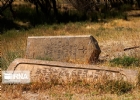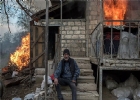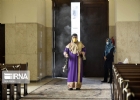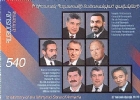
English :
26 Ocak 2023
![]()
![]()
![]()
Russia says it is working hard to resolve Armenia-Azerbaijan dispute - 
Trilateral talks with Sweden, Finland canceled indefinitely: TürkiyeTÜRKIYE-SWEDEN-RELATIONSThe Kremlin Tuesday said it is continuing efforts to resolve a dispute between Armenia and Azerbaijan over the Lachin corridor, a mountainous road linking Armenia to Karabakh where Russian peacekeepers are stationed.
"The Russian Federation ... continues its painstaking work in this direction," Kremlin spokesperson Dmitry Peskov told reporters. Azerbaijani President Ilham Aliyev denies that the corridor is subject to a blockade and says activists protesting illegal mining activity are the main reason for the disruption to traffic.
Russia is an ally of Armenia through a mutual self-defense pact, but tries to maintain warm relations with Azerbaijan and has rejected calls by Yerevan to provide military support.
The standoff is a test of Russia's authority as the main security guarantor in the region at a time when its struggles in the war in Ukraine risk undermining its primary status among former Soviet republics in the South Caucasus and Central Asia.
Relations between the former Soviet republics of Armenia and Azerbaijan have been tense since 1991 when the Armenian military illegally occupied Karabakh, a territory internationally recognized as part of Azerbaijan, and seven adjacent regions.
The clashes erupted on Sept. 27, 2020, with the Armenian Army attacking civilians and Azerbaijani forces, violating several humanitarian cease-fire agreements. During the 44-day conflict, Azerbaijan liberated several cities and around 300 settlements and villages that had been occupied by Armenia for almost 30 years.
The fighting ended with a Russian-brokered agreement on Nov. 10, 2020, which was seen as a victory for Azerbaijan and a defeat for Armenia.
However, the cease-fire has been broken several times since then.
Since mid-December, a group of Azerbaijani activists have been protesting illegal mining that has been causing environmental damage in the region. The protests erupted after representatives of Azerbaijan attempting to visit the areas where mineral resources are being illegally exploited were barred access to the area.
Yerevan has been accusing Azerbaijan of creating a “humanitarian catastrophe” by purposefully blocking the only road linking Armenia to the region, which houses thousands of Armenians. It also slammed the Russian peacekeeping contingent claiming it is “failing to fulfill its purpose of clearing the corridor."
Baku has consistently rejected Yerevan’s accusations, with Foreign Minister Jeyhun Bayramov stressing that obstacles to the use of the road are created by people who introduced themselves as "the leaders of local Armenians” and claims that the protests on the Lachin road posed the threat of a humanitarian crisis to the local Armenian population are baseless.
Last week, the country also filed a lawsuit against Armenia over its “extensive destruction and deforestation” of the environment throughout its three-decade occupation.
Earlier this week, U.S. Secretary of State Antony Blinken called on Aliyev to ramp up efforts in bilateral peace discussions with Armenia and urged “an immediate reopening of the Lachin corridor to commercial traffic.”
Blinken also spoke to Armenian Prime Minister Nikol Pashinian the week prior and voiced "deep concern for the worsening humanitarian situation” in Karabakh due to the blockage of the corridor.
The U.S. diplomat has been active in mediating between the two former Soviet republics, increasing U.S. influence on an issue long dominated by Russia at a time Yerevan has grown increasingly wary of Russia – formally an ally through a mutual self-defense treaty – for not doing more to end the blockade, especially since Russian peacekeepers are deployed in the corridor.
On Tuesday, another move to contribute to stability and normalization in the region came from the European Council, which deployed the European Union Mission in Armenia (EUMA), a civilian mission, on the Azerbaijani-Armenian border.
The deployment followed Russia’s warnings a week before against a "civil monitoring mission" on the border with Azerbaijan without Baku's consent.
"This is the border with Azerbaijan, so if this mission unfolds without the consent of Azerbaijan, it may simply be counterproductive. Instead of building trust at the border, it can create additional irritants," Lavrov said.
Stressing that the mission must take into account its legitimate interests in the region, Baku responded it remains of the “firm position that such an engagement must not be exploited for derailing the normalization process between Azerbaijan and Armenia, including in the context of border delimitation process that should be carried out exclusively on a bilateral basis.”
The EUMA will conduct routine patrols and report on the situation, as well as contribute to mediation efforts. It will have an initial mandate of two years and its operational headquarters will be in Armenia.
"The Russian Federation ... continues its painstaking work in this direction," Kremlin spokesperson Dmitry Peskov told reporters. Azerbaijani President Ilham Aliyev denies that the corridor is subject to a blockade and says activists protesting illegal mining activity are the main reason for the disruption to traffic.
Russia is an ally of Armenia through a mutual self-defense pact, but tries to maintain warm relations with Azerbaijan and has rejected calls by Yerevan to provide military support.
The standoff is a test of Russia's authority as the main security guarantor in the region at a time when its struggles in the war in Ukraine risk undermining its primary status among former Soviet republics in the South Caucasus and Central Asia.
Relations between the former Soviet republics of Armenia and Azerbaijan have been tense since 1991 when the Armenian military illegally occupied Karabakh, a territory internationally recognized as part of Azerbaijan, and seven adjacent regions.
The clashes erupted on Sept. 27, 2020, with the Armenian Army attacking civilians and Azerbaijani forces, violating several humanitarian cease-fire agreements. During the 44-day conflict, Azerbaijan liberated several cities and around 300 settlements and villages that had been occupied by Armenia for almost 30 years.
The fighting ended with a Russian-brokered agreement on Nov. 10, 2020, which was seen as a victory for Azerbaijan and a defeat for Armenia.
However, the cease-fire has been broken several times since then.
Since mid-December, a group of Azerbaijani activists have been protesting illegal mining that has been causing environmental damage in the region. The protests erupted after representatives of Azerbaijan attempting to visit the areas where mineral resources are being illegally exploited were barred access to the area.
Yerevan has been accusing Azerbaijan of creating a “humanitarian catastrophe” by purposefully blocking the only road linking Armenia to the region, which houses thousands of Armenians. It also slammed the Russian peacekeeping contingent claiming it is “failing to fulfill its purpose of clearing the corridor."
Baku has consistently rejected Yerevan’s accusations, with Foreign Minister Jeyhun Bayramov stressing that obstacles to the use of the road are created by people who introduced themselves as "the leaders of local Armenians” and claims that the protests on the Lachin road posed the threat of a humanitarian crisis to the local Armenian population are baseless.
Last week, the country also filed a lawsuit against Armenia over its “extensive destruction and deforestation” of the environment throughout its three-decade occupation.
Earlier this week, U.S. Secretary of State Antony Blinken called on Aliyev to ramp up efforts in bilateral peace discussions with Armenia and urged “an immediate reopening of the Lachin corridor to commercial traffic.”
Blinken also spoke to Armenian Prime Minister Nikol Pashinian the week prior and voiced "deep concern for the worsening humanitarian situation” in Karabakh due to the blockage of the corridor.
The U.S. diplomat has been active in mediating between the two former Soviet republics, increasing U.S. influence on an issue long dominated by Russia at a time Yerevan has grown increasingly wary of Russia – formally an ally through a mutual self-defense treaty – for not doing more to end the blockade, especially since Russian peacekeepers are deployed in the corridor.
On Tuesday, another move to contribute to stability and normalization in the region came from the European Council, which deployed the European Union Mission in Armenia (EUMA), a civilian mission, on the Azerbaijani-Armenian border.
The deployment followed Russia’s warnings a week before against a "civil monitoring mission" on the border with Azerbaijan without Baku's consent.
"This is the border with Azerbaijan, so if this mission unfolds without the consent of Azerbaijan, it may simply be counterproductive. Instead of building trust at the border, it can create additional irritants," Lavrov said.
Stressing that the mission must take into account its legitimate interests in the region, Baku responded it remains of the “firm position that such an engagement must not be exploited for derailing the normalization process between Azerbaijan and Armenia, including in the context of border delimitation process that should be carried out exclusively on a bilateral basis.”
The EUMA will conduct routine patrols and report on the situation, as well as contribute to mediation efforts. It will have an initial mandate of two years and its operational headquarters will be in Armenia.
Bu haber sabah kaynağından gelmektedir.
Haber metninde yer alan görüşler haber kaynağı (sabah) ve yazarına ait olup,
bolsohays.com sitesi haber hakkında herhangi bir görüş üstlenmemektedir.
Opinions expressed are those of the author(s)-(sabah). They do not purport to reflect the opinions or views of bolsohays.com
Diğer Haberler
-
Ohanian Becomes First Armenian-American to Receive Best Picture Oscar Nomination
-
Pashinyan Announces Beginning of Renewal of Armenian Apostolic Church
-
Azerbaijan-Armenia normalization push set to carry into 2026
-
Pashinyan Urges Karabakh Armenians to Embrace Armenian Citizenship for Security
-
Armenia adopts universal healthcare insurance
-
Armenia pays mothers $1,300 for each child born
-
Photography of Ancient Armenia Featured in New 2026 Wall Calendar
-
Pope asks for prayers ahead of visit to Türkiye and Lebanon
-
Armenia will step up its efforts toward membership in the European Union in 2026
-
Economy Minister discussed rebranding of Armenian brandy with producers
-
Aleppo - Yerevan - Aleppo
-
Mirzoyan: Armenia citizens should live in Armenia, Azerbaijan citizens should live in Azerbaijan
Foto Galeri Tüm Galeriler
Video Galeri Tüm Videolar
Anket Tüm Anketler
Günün Sözü
Ան որ պարտուելէ կը վախնայ, վստահ թող ըլլայ որ պիտի պարտուի։


















